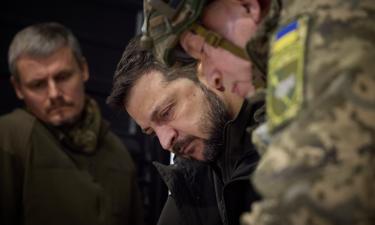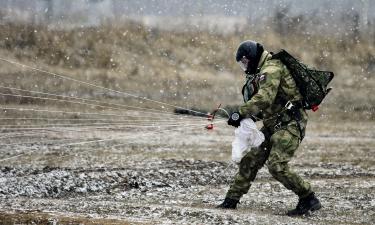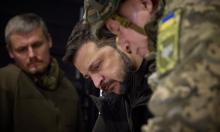Putin's Russia as Soviet Corporation
The government of Dmitry Medvedev has resigned. Medvedev failed to meet the requirements of many of Putin's decrees, but Putin takes every effort to make the lives of former governmental officials comfortable by moving them to other high-ranking positions. Is there any place for the feeling for patriotism?
And Medvedev's government goes to...
It became known that:
- ex-Prime Minister Dmitry Medvedev will work at the Security Council of the Russian Federation. There was a new position established especially for him - deputy chairman of the Security Council. Medvedev will thus deal with issues of improving the defense capability and security of the Russian Federation. Frankly speaking, security officials can hardly be happy to see Medvedev in their ranks.
- Maxim Topilin, the former Minister of Labor and Social Protection, who "defended" Russian pensioners by raising the retirement age, became ... the head of the Pension Fund. The former head of the Pension Fund, billionaire Anton Drozdov, who could not find any funds to index pensions for working pensioners for 4 years, was appointed to the position of Deputy Minister of Finance. The money to raise pensions for working pensioners was quickly found now.
- Veronika Skvortsova, the former Minister of Health, who was unaware of the amount of real salaries of doctors in Russia, took the position of the head of the Federal Medical and Biological Agency. In other words, having failed in the field of primary health care, her new duty is to control it.
- Vitaly Mutko, who was responsible for construction and housing in Medvede's government, could never manage to put things in order in both of those spheres. Moreover, when Mutko served on his previous position of the Minister for Sports, the doping scandal started. According to Grigory Rodchenkov, it was Mutko who was coordinating the substitution of samples with him. According to RBC, Mutko may take the post of the head of the state-owned investment company Dom.rf.
- For ex-Minister of Culture Vladimir Medinsky, Putin personally promised to find a good place. He was appointed assistant to the president for culture, that is, he will become the curator of the industry.
- The former head of the Ministry for Economic Development, Maxim Oreshkin, was appointed to a similar position.
- Former Deputy Prime Minister Dmitry Kozak, who was responsible for economic cooperation with Ukraine, also failed on his job. Yet, he found common language with Ukrainian officials, after Russia signed an extremely disadvantageous gas transit contract. Kozak was appointed deputy head of the presidential administration. One shall assume that the shadow cabinet will make Ukraine feel even better.
How can one love a country ruled by immoral officials?
Putin did not say why those people would not work in the new government. On the contrary, he thanked them for "macroeconomic stability", but said nothing about the microeconomic stability.
At the same time, it is not clear why Finance Minister Anton Siluanov is still in the office, because it was him, who, together with chairwoman of the Central Bank Elvira Nabiullina, crushed the economy with a system of unaffordable crediting and money supply restrictions.
Why does Denis Manturov, the Minister of Industry, keep his post as well, even though he failed the Superjet project and ruined the domestic aircraft-building industry?
There are other, more important questions left.
Why don't the "resigned" officials, who were basically dismissed for their professional ineptitude, bother to get new jobs for themselves? After all, ordinary citizens do it themselves. What kind of patriotism should the Russians have if Russian officials behave in a very rude way with people, they plunder the people and intend to do the same on their new posts?
Russia as a corporate state
Political analyst Dmitry Oreshkin told Pravda.Ru that Russia was turning into a corporate state that takes care of corporate people. An official as a member of the corporation knows a lot indeed and if he leaves one corporation for another, a competing one, he takes his knowledge there.
The model of Putin's state contains elements of corrupted loyalty, the expert added. Loyal people are allowed to receive profitable contracts or other advantages.
"Putin can not let these people go, because, firstly, they know too much. They can spill the beans, like Grigory Rodchenkov did, or join the opposition, like Mikhail) Kasyanov did. Therefore, Putin needs to soft-pedal on them, to give them an opportunity to work within the framework of the system, where they will not be able to cause the system any harm," Dmitry Oreshkin said.
For example, ex-Prosecutor General Yuri Chaika was moved to the North Caucasus Federal District as the head of this district, and "this post has very mysterious functions."
"He has the mechanism, he has a budget, but this is only for this mechanism. However, if the Kremlin needs something, they speak to the head of the region, rather than to the head of the federal district. In a nutshell, there are plenty of jobs for mediocre people in Russia who will look pretty good there," said Dmitry Oreshkin.
The state of officials was created in the Soviet Union
In a sense, such posts are an administrative pension.
"If you kick them out, well, Stalin used to destroy those who knew too much, because they could destroy the image of Stalin," the political scientist said.
According to him, senior Soviet officials would be deprived of the opportunity to talk about something significant. For example, Khrushchev used to send Zhukov in exile. They could still work, but they were not allowed to say anything.
Brezhnev, he added, gave Khrushchev an opportunity to write memoirs on the subject that were of concern to the Soviet authorities of that time. Putin is trying to prevent this by ensuring the loyalty of senior officials of the state by transferring them to other posts within the state "corporation."
Do Western officials abide by law at all times?
In the United States, Dmitry Oreshkin said, officials receive pension in accordance with the federal law. However, this is quite small a pension, just like president's salary. They set up various funds to secure themselves financially.
"There is no such corporate state in the US system. For example, Henry Kissinger, after leaving the civil service, became a member of the board of directors of a large consulting company and was making good money at Booz Allen Hamilton. He had the so-called GR (Government Relations) expertise. They paid him well, but no one was trying to shut his mouth, because he was not serving the US corporation - he was serving the US law," said Dmitry Oreshkin.
According to him, even the Russian Empire did not have such a thing as state corporation - this phenomenon was born during the times of the Soviet Union.
Subscribe to Pravda.Ru Telegram channel, Facebook, RSS!





